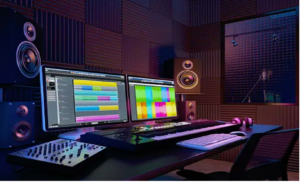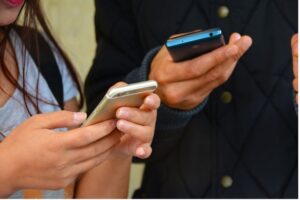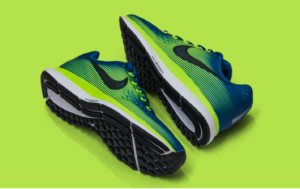By: Vincent Alfieri Universal Music Group has recently filed a lawsuit against Anthropic PBC, an Amazon backed startup, alleging that the company’s Artificial Intelligence (“AI”) chatbot infringes on the lyrics from multiple copyrighted songs.[1] Universal’s complaint contains numerous side-by-side...
 By: Vincent Alfieri
By: Vincent Alfieri
Universal Music Group has recently filed a lawsuit against Anthropic PBC, an Amazon backed startup, alleging that the company’s Artificial Intelligence (“AI”) chatbot infringes on the lyrics from multiple copyrighted songs.[1] Universal’s complaint contains numerous side-by-side comparisons of the chatbot’s generated lyrics and the lyrics from copyrighted works.[2] When directed by a user, the chatbot will generate lyrics that are “nearly identical” to the lyrics of the copyrighted songs.[3] This marks the Music Industry’s first lawsuit concerning the use of generative AI, and the outcome of the case may finally set the standard for what is an appropriate use of generative AI in music creation.[4]
The use of AI within the music industry is not a new phenomenon. AI has been used by streaming services and record labels to curate playlists and enhance users’ listening experience, while record labels have utilized AI for talent discovery.[5] However, Generative AI’s ability to allow the copying of one’s voice, style, and lyrics has left courts, lawyers, and policy makers struggling to determine what protection artists are afforded under Intellectual Property and Copyright Law.[6] A Senate proposal, announced earlier this month, has attempted to answer part of this question.[7]The proposed bill seeks to hold AI companies and users liable for damages resulting from the replication of an artist’s voice, image, and visual likeness without consent.[8] A bill of this sort may be used to protect artists from uses similar to that of “ghostwriter77” who utilized AI generative software to replicate the vocals of artists Drake and the Weeknd to create the popular song “Heart On My Sleeve.”[9]
However, in this case, Universal’s claim seeks to protect the lyrics of artists and songwriters rather than their image or stylistic attributes.[10] Universal points out that, unlike AI, songwriters possess the creativity that is used to come up with lyrics and that is required to warrant them protection under US Copyright Law.[11] While it is clear that the creative and innovative works of artists and songwriters are warranted protection, does the AI’s use of the copyright works constitute an infringement under US law? Does this type of AI use go against basic principles of Intellectual Property and Copyright Law?
There’s reason to believe the Court will answer yes to both questions. In Authors Guild v. Google, Inc.,[12] The Court established four fair use factors to consider when assessing the secondary use of a copyrighted work which will likely be applied to the outputs of the AI chatbot.[13] The first factor assessing what constitutes a transformative use will likely be one of contention.[14] Generative AI analyzes the contents of the inputted work and then outputs a work that replicates key components. In this case, the lyrics the Chatbot outputs are derived from the lyrics of copyrighted songs. The Chatbot’s ultimate purpose for doing so is to create lyrics that resemble the original songs as it is requested by its user. Considering the profit motivations Anthropic PBC may have, the Court will likely conclude that the use of the Chatbot is not transformative enough and that it does infringe on the copyright of the original songs.[15] In Campbell v. Acuff-Rose Music, Inc.,[16] the Court held that copying the lyrics of another song in order to create a parody is a transformative use when the parody has a sufficient purpose and character and would not serve as a market substitute to the original song.[17] On this note, the Court will likely find that the Chatbot infringes on the copyrighted works of other artists because its function is to replicate the key and distinctive elements of the original rather than create a parody with its own distance purpose and character.
The Chatbot’s lack of creativity and lack of an alternative purpose and character within its works renders its use as incompatible with principals of intellectual property that drives innovation and creation.[18] Ruling in favor of Anthropic PBC and limiting the protection for the creative works of artist and songwriters would be dangerous because it would disincentivize any future artists and songwriters to create when they could instead copy or replicate elements of other songs that have already found success.[19] Regardless of its outcome, the Court’s decision will be crucial with the current lack of clarity on how this rapidly developing AI generative software fits in the music industry.
[1] Isaiah Poritz, Universal Music Suit Says Anthropic AI Model Copies Song Lyrics, Bloomberg L. (Oct. 19, 2023 11:11 AM) https://www.bloomberglaw.com/product/blaw/bloomberglawnews/bloomberg-law-news/XD1T1SVC000000?bc=W1siU2VhcmNoICYgQnJvd3NlIiwiaHR0cHM6Ly93d3cuYmxvb21iZXJnbGF3LmNvbS9wcm9kdWN0L2JsYXcvc2VhcmNoL3Jlc3VsdHMvYmNiMjliMjIyZjUyYTliNDY5NjhmNjBmZmEzODZhM2IiXV0–8bdde0fcfff0d241c811bc3c1c926f0911281236&bna_news_filter=bloomberg-law-news&criteria_id=bcb29b222f52a9b46968f60ffa386a3b.
[2] See Complaint at 21-39, Concord Music Group, Inc. et al v. Anthropic PBC (M.D. Tenn. 2022) (No. 3:23-cv-01092); See also Sarah Jacob, Universal Music Sues Amazon-Backed AI Firm for Copying Lyrics, Bloomberg L. (Oct. 19 2023 5:18 AM). https://www.bloomberglaw.com/product/blaw/bloomberglawnews/bloomberg-law-news/XACTEMU4000000?bc=W1siU2VhcmNoICYgQnJvd3NlIiwiaHR0cHM6Ly93d3cuYmxvb21iZXJnbGF3LmNvbS9wcm9kdWN0L2JsYXcvc2VhcmNoL3Jlc3VsdHMvZmQ1Mzg2MjZkODU4NmEwZDkzZDUwZmFhNGMwYjZmMmMiXV0–5f3fb3a49565cb783a4b122a21baa184db4f9641&bna_news_filter=bloomberg-law-news&criteria_id=fd538626d8586a0d93d50faa4c0b6f2c&search32=fXYwuEJsyoC4oBkcMfiKCQ%3D%3DzDd9h694d5f4wq-VLCoOtY5d7SyEdGBCcTJ52NtE14Z7nw85VWgkOevNpjbXoUKvs6PoEuuafyzdhf_j1qdm8Hsnf_Zcv2K9PoD4vBvS-Hm3cpkaSLfrKFRdJ4CWn2yo1dxiebVim01KVbhubV6FoQ%3D%3D
[3] Jacob, supra note 2.
[4] Poritz, supra note 1.
[5] Eric Sunray, Sounds of Science: Copyright Infringement in Ai Music Generator Outputs, 29 Cath. U. J. L. & Tech.185, 191 (2021)
[6] Riddhi Setty, AI Imitating Artist ‘Style’ Drives Call to Rethink Copyright Law, BL (May 31, 2023, 5:15 AM). https://news.bloomberglaw.com/ip-law/ai-imitating-artist-style-drives-call-to-rethink-copyright-law.
[7] Oma Seddiq, AI Proposal in Senate Would Protect Artists’ Voices, Likenesses, Bloomberg Gov’t (Oct. 12, 2023 12:13 PM) https://news.bgov.com/bloomberg-government-news/ai-copyright-protections-for-artists-proposed-in-senate.
[8] Nurture Originals, Fosters Art, and Keep Entertainment Safe Act of 2023 118th Cong. (2023) (as proposed by S. Coons, Blackburn, Klobuchar & Tillis, Oct. 12, 2023).
[9] Rachael Reed, AI created a song mimicking the work of Drake and The Weeknd. What does that mean for copyright law? Harv. L. Today (May 2, 2023), https://hls.harvard.edu/today/ai-created-a-song-mimicking-the-work-of-drake-and-the-weeknd-what-does-that-mean-for-copyright-law/.
[10] See Poritz, supra note 1.
[11] Id.
[12] 804 F.3d 202, 203 (2d Cir. 2015).
[13] Id. at 213 (discussing the four fair use factors: the purpose and character of use, the nature of the copyrighted work, the amount or substantiality of the portion used, and the impact on the potential market for or value of the work).
[14] Id. at 214.
[15] Authors Guild, 804 F.3d at 223 (holding that a meaningful or significant effect “upon the potential market for or value of the copyrighted work with violate the fourth fair use factor); See also Jacob, supra note 2 (holding that Anthropic PBC may secure close to $4 billion in an investment from Amazon).
[16] 510 U.S. 569, 570 (1994).
[17] Id. at 593.
[18] U.S. Const. art. I, § 8, cl. 8.
[19] Authors Guild v. Google, Inc., 804 F.3d 202, 212 (2d Cir. 2015) (explaining that the goal of copyright is to increase “public knowledge and understanding” by giving creators control over their work in order to establish a financial incentive to create new innovative works).












